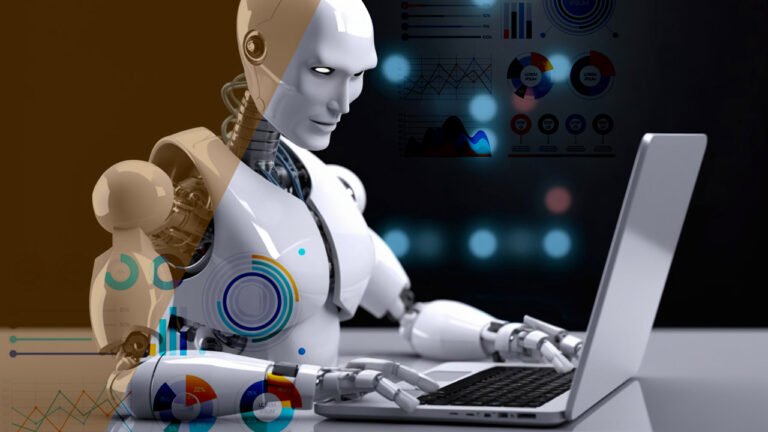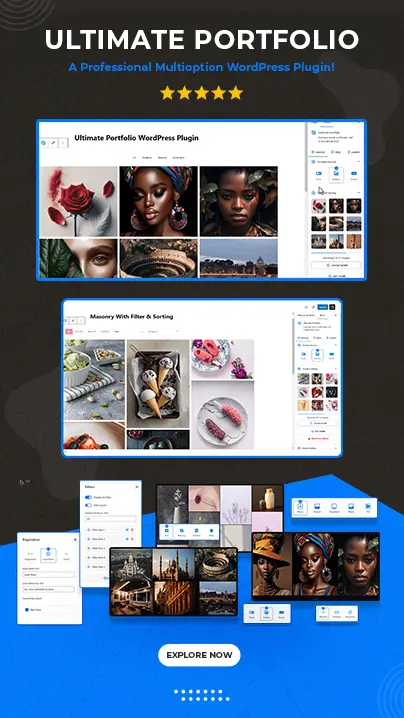
In the ever-evolving landscape of digital marketing, the emergence of Artificial Intelligence (AI) has brought about a profound transformation. AI, with its remarkable capabilities, has not only reshaped the way businesses approach marketing but has also redefined the boundaries of what is possible. This article embarks on a journey to explore the multifaceted role of AI in the realm of digital marketing. From its rise as a potent force to its diverse applications and the numerous advantages it bestows upon marketers, we will delve into the intricate web of AI’s influence. Moreover, we will navigate the potential challenges that come hand-in-hand with this revolutionary technology, shedding light on the ethical and operational considerations that marketers must embrace as they embark on this AI-driven voyage. Welcome to the world where artificial intelligence meets digital marketing, a synergy that holds the promise of redefining the way we engage with our audiences and shape the future of commerce.
Data Analysis and Insights
The foundation of AI’s impact on digital marketing lies in its remarkable ability to process and analyze vast datasets at an unprecedented speed and scale. Marketers can now delve deep into consumer behavior, preferences, and trends with AI-powered analytics tools. This data-driven approach empowers businesses to make informed decisions and craft marketing strategies that are finely tuned to their target audiences. Whether it’s analyzing website traffic patterns, social media engagement metrics, or customer purchase histories, AI-equipped platforms can process and extract valuable insights that would be impractical for humans to glean manually.
Personalization
AI has ushered in a new era of hyper-personalization in digital marketing. By leveraging AI algorithms, marketers can create highly personalized experiences for each individual consumer. These algorithms analyze a user’s past interactions, browsing history, and demographic information to deliver tailor-made content, product recommendations, and marketing messages. Personalization not only enhances the user experience but also significantly boosts the conversion rates and customer retention rates. For example, e-commerce websites like Amazon use AI to suggest products based on a user’s past purchases and browsing behavior, increasing the chances of making a sale.
Chatbots and Customer Service
AI-powered chatbots are revolutionizing customer service in the digital age. These virtual assistants are available around the clock, providing real-time support to users. They can answer frequently asked questions, guide users through complex processes, and even engage in natural language conversations. Chatbots offer businesses the advantage of improving customer satisfaction while simultaneously reducing operational costs. Whether it’s resolving customer queries on an e-commerce site or providing troubleshooting assistance for software applications, AI chatbots are proving to be indispensable assets.
Content Generation
AI has extended its reach into content creation, albeit as a supplementary tool rather than a replacement for human creativity. Automated content generation tools can produce initial drafts for various content types, including blog posts, product descriptions, and news articles. While the quality of AI-generated content may not match that of human-written content, it can serve as a valuable starting point. Content creators can then refine and customize the AI-generated content to align with their brand voice and messaging. AI-driven content generation is particularly useful for scaling content production efforts and optimizing content for SEO.
Predictive Analytics
Predictive analytics powered by AI is a game-changer in digital marketing. It involves using historical data and machine learning algorithms to forecast future trends, consumer behavior, and market shifts. Marketers can leverage predictive analytics to make proactive decisions, allocate resources more effectively, and identify opportunities for growth. For example, an e-commerce retailer can use predictive analytics to forecast which products are likely to sell well during specific seasons, ensuring they have ample stock and targeted marketing campaigns in place.
Email Marketing
Email marketing remains a potent tool in the digital marketer’s arsenal, and AI is making it more effective than ever. AI-driven email marketing platforms can segment email lists based on user behavior and demographics. They can also send personalized messages at optimal times when users are most likely to engage. AI algorithms analyze user engagement with email content, allowing marketers to refine their strategies continuously. This results in higher open rates, click-through rates, and conversion rates for email campaigns, translating into more significant returns on investment.
Search Engine Optimization (SEO)
Search Engine Optimization (SEO) is a cornerstone of digital marketing, and AI has brought about significant changes in this arena. AI algorithms like Google’s RankBrain are designed to understand user intent and context better, making search engine results more relevant. AI-driven SEO tools help marketers identify keyword opportunities, optimize on-page content, and monitor search engine rankings. As search engines become more sophisticated, AI is essential for staying ahead in the highly competitive world of online visibility.
Benefits of AI in Digital Marketing

Increased Efficiency
AI’s automation capabilities have brought unprecedented efficiency to digital marketing processes. Tasks that were once manual and time-consuming, such as data analysis, content curation, and A/B testing, can now be automated. This frees up marketers to focus on higher-level strategic thinking, creativity, and campaign optimization.
Improved ROI
AI’s ability to deliver highly targeted and personalized content and advertisements leads to improved Return on Investment (ROI). With AI, marketing campaigns can reach the right audience at the right time, resulting in higher conversion rates and revenue generation. Additionally, AI helps optimize advertising spend by allocating budgets to the most effective channels and strategies.
Enhanced Personalization
Personalization is no longer a buzzword but a fundamental requirement in modern digital marketing. AI enables businesses to deliver content and messages tailored to individual preferences, behaviors, and demographics. This not only increases user engagement but also fosters stronger customer relationships and loyalty.
Data-Driven Decision-Making
AI provides digital marketers with a treasure trove of data-driven insights. From understanding user behavior to tracking campaign performance, AI-generated analytics empower marketers to make informed decisions in real-time. This agility is crucial in a rapidly changing digital landscape.
Cost Savings
Automation and optimization through AI can lead to significant cost savings. Marketing efforts become more efficient, reducing the need for extensive manual labor and minimizing wastage of resources. This is particularly valuable for businesses with limited marketing budgets.
Challenges and Considerations
Data Privacy
The collection and use of user data are central to AI-driven marketing strategies. However, this raises critical concerns about data privacy. Marketers must navigate the complex landscape of data regulations, such as the General Data Protection Regulation (GDPR) and the California Consumer Privacy Act (CCPA), to ensure compliance and build trust with consumers.
Algorithm Bias
AI algorithms can inadvertently perpetuate biases present in training data. This can lead to unfair or discriminatory outcomes in marketing campaigns. Addressing algorithmic bias requires ongoing vigilance, transparency, and ethical considerations in AI-driven decision-making.
Dependency on Technology
While AI enhances efficiency and precision, over-reliance on technology can stifle creativity and innovation. It’s essential for marketers to strike a balance between AI-driven automation and human creativity to maintain a unique brand identity and engage with customers authentically.
Complexity
Implementing AI technologies in digital marketing can be complex and may require specialized skills and resources. Businesses must invest in training and development to effectively harness AI’s capabilities.
Continuous Learning
AI models require ongoing training and fine-tuning to remain effective. The digital marketing landscape is dynamic, and AI algorithms must adapt to changing consumer behavior and market trends. This demands a commitment to continuous learning and optimization.
Conclusion
AI’s integration into digital marketing has brought about a seismic shift in how businesses connect with their audiences online. From data analysis and personalization to automation and predictive analytics, AI empowers marketers to make smarter decisions and deliver more engaging and relevant content. While the benefits of AI in digital marketing are substantial, businesses must also navigate challenges related to data privacy, algorithm bias, and the evolving nature of AI technology. The symbiotic relationship between AI and digital marketing promises exciting developments in the future, as marketers continue to harness the power of AI to drive success in the digital landscape.
